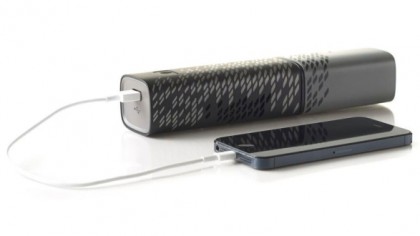The battery research that could change your phone, and the world
Has it run out of juice?
Sign up for breaking news, reviews, opinion, top tech deals, and more.
You are now subscribed
Your newsletter sign-up was successful
We don't know whether OMAP 6 would have been any better and sadly it doesn't look like we ever will.
Chance of it happening: It won't be coming from Texas Instruments, but other manufacturers are slowly getting there.
A fuel cell future
Way back in 2007 we wrote about how fuel cells might soon start to make their way into electronics. Seven years later and well, they haven't really.

But all is not lost, as recently a fuel cell phone charger called 'Upp' was released. So far it's only available in Africa, where its lack of requirement for the grid is especially useful, as finding a socket can be easier said than done, particularly if you live in one of the many villages that are totally off the power grid.
But now it's on its way to the U.S, where it will carry a price tag of $199 (around £120). There's no word on if or when it will hit the UK, but the U.S is a step in the right direction.

It has a detachable, re-usable cartridge with 25,000 mAh of charge, which is enough to charge most phones five times over. Beyond the fact that there's no requirement for the grid to use it, which could seriously cut carbon emissions if fuel cells become commonplace, the Upp and other fuel cells don't rely on finite resources, like the lithium that we currently use for batteries.
So a future where fuel cells truly replace lithium-ion batteries may make sense. That future is likely a long way off yet though as we're only just starting to see portable fuel cell chargers, while the actual juice packs in our phones are still lithium-ion.
Sign up for breaking news, reviews, opinion, top tech deals, and more.
There are issues to be addressed before it can happen too, such as the fact that building a fuel cell into a phone or tablet would almost certainly require it to be bigger and heavier than we're used to.
If fuel cell chargers take off though then fuel cell powered phones could be a very real long term possibility.
Chance of it happening: Lithium is a finite resource so one day something will have to replace it and fuel cells seem like a good bet, but it's likely a long way off.
- Don't let battery woes get you down. Stay charged for longer with our in depth guide
James is a freelance phones, tablets and wearables writer and sub-editor at TechRadar. He has a love for everything ‘smart’, from watches to lights, and can often be found arguing with AI assistants or drowning in the latest apps. James also contributes to 3G.co.uk, 4G.co.uk and 5G.co.uk and has written for T3, Digital Camera World, Clarity Media and others, with work on the web, in print and on TV.